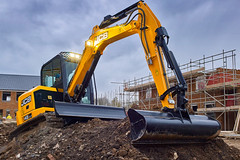Mold Remediation In Ct And Asbestos Abatement Can Be Accomplished By Highly Experienced Professionals

- Read An Opinion On:
- Digit Civil
byAlma Abell
Mold remediation is particularly important if black mold is present. This is dangerous to the health of the occupants and particularly so if anyone has serious breathing issues. Mold remediation requires very careful examination of the home by a technician from Mold remediation in CT who specializes in mold detection, remediation and mold removal.
Mold remediation in CT requires the specialist to look everywhere black mold can grow. Surprisingly, it can grow on the back of wall paper. Black mold can grow anywhere that is damp for a prolonged period and where there is standing water. Really damp conditions are ideal for black mold growth also.
Once the mold is found, the remediation specialists can begin their work which is essentially encapsulating the mold so the spores do not become airborne. Once the mold is well contained, it can safely be removed from the house. The area where the mold was growing should be treated by chemical recommended by Mold remediation in CT.
Asbestos is a far more serious problem for the homeowner. Federal NESHAP rules mandate that asbestos must be removed in a prescribed method for the building to be compliant. This can only be accomplished by a professional full asbestos removal company. The technicians must be trained and have the specialized knowledge and experience to ensure that you are provided with the following best practices:
* Encapsulation of the Asbestos
* Legal disposal of asbestos
* Site decontamination in compliance with regulations
* Asbestos abatement in demolition projects
* Efficient containment and abatement
The technicians at AA Asbestos Abatement LLC are licensed and certified by Federal and Connecticut regulations. They are fully aware of how to transport asbestos to a disposal site. The asbestos must be wet and sealed in heavy plastic bags for transport to an acceptable landfill. The disposal, storage and transport of asbestos waste at non-worksites is regulated by the Environment Protection Authority (EPA). Local councils can also promulgate regulations if they have the appropriate regulatory authority (ARA). Asbestos is extremely dangerous if it becomes airborne. Many tragic cases of this are now in litigation. If the above procedures are followed, then they are the best protection.